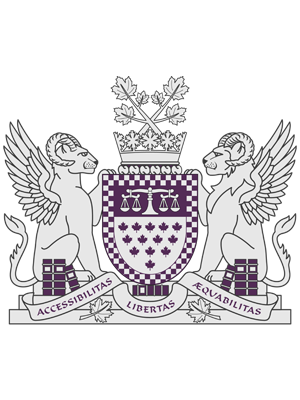Settlement Conferences
Settlement conferences may take place on the Court's own initiative or at the request of either party at any time in the litigation process. Simply put, a settlement conference is a meeting presided by a judge with the parties for the purpose of settling some or all of the issues. The judge who presides at a settlement conference shall not preside at the hearing of the appeal if the case does not settle.
Parties are encouraged to settle their dispute early in the litigation process. An early settlement has the added advantage of reducing the costs borne by the parties but also has the effect of preserving judicial resources. Parties are entitled to make and accept offers of settlement at any time before there is a judgment and any written offer to settle will be considered by the Court in assessing costs.
Some key elements to consider once the Court schedules a settlement conference:
- Both parties must be present at all times during the settlement conference.
- Parties to the settlement conference must ensure that a representative with full authority to settle the appeal is present at all times.
- The Court may award costs against a party where it deems the conduct of that party to have impeded on the efficient functioning of the settlement conference.
-
At least 14 days before the settlement conference, each party shall serve and submit a settlement conference brief not exceeding 10 pages containing:
- an explanation of the party’s theory of the case;
- a statement of the material facts that the party expects to establish at the hearing of the appeal and how they will be established;
- a statement of the issues to be determined at the hearing; and
- a statement of the law and authorities that the party will rely on at the hearing of the appeal.
